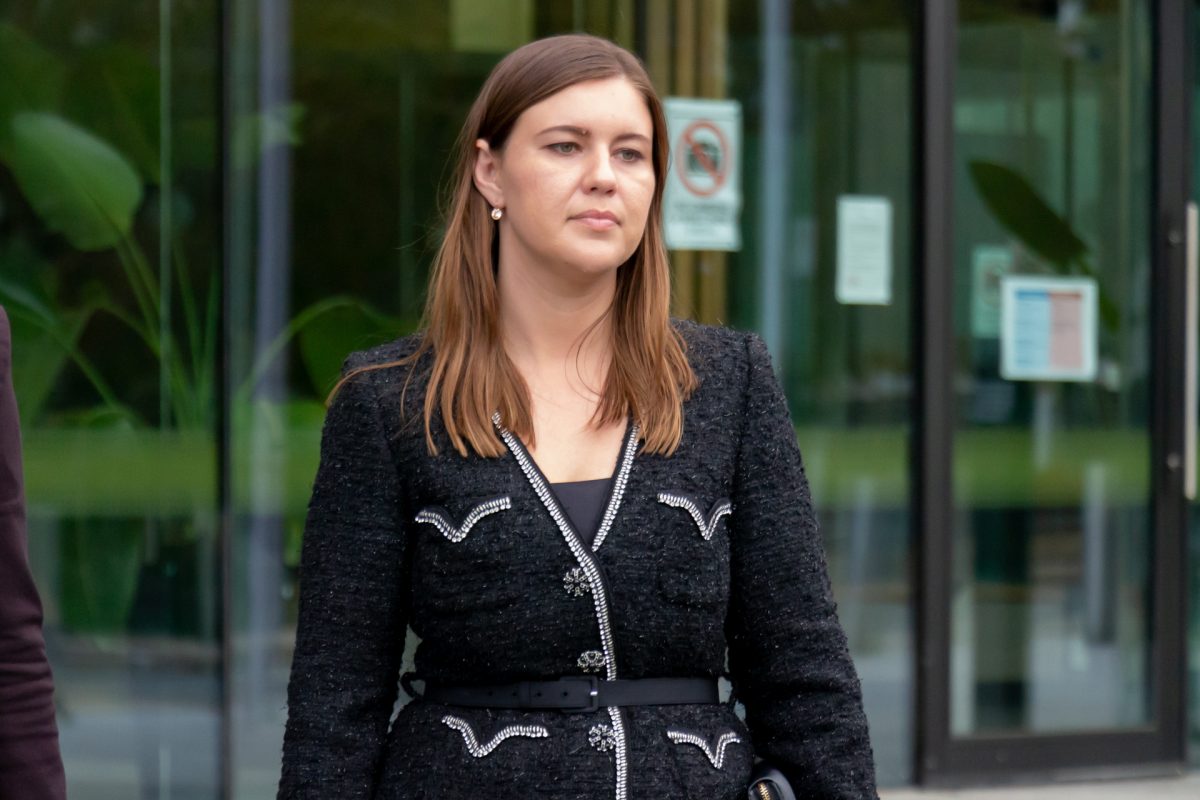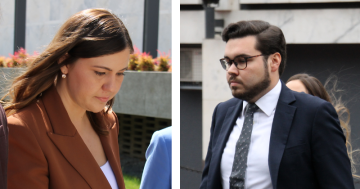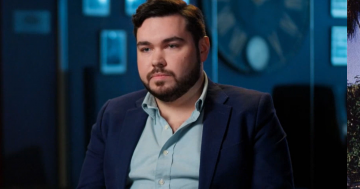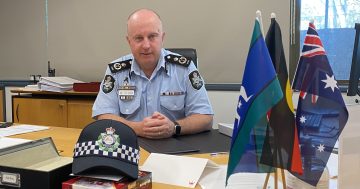
Brittany Higgins leaving court after cross-examination. The trial was aborted due to juror misconduct. Photo: Albert McKnight.
Canberra Rape Crisis Centre was “contacted by media a number of times” for information on Brittany Higgins, CEO Chrystina Stanford said, which she interpreted as an effort “to publish yet another story aimed at shaming, blaming, and discrediting a young woman”.
In an open letter circulated on Tuesday (6 June), Ms Stanford told the Australian media they are “telling the wrong story”.
“These are not positive experiences for us, as we were contacted in an attempt to criticise a young person publicly, to tear at her story, her life and her pain. The media wanted us to join the circus. We wanted no part of it,” she wrote.
Ms Stanford did not name any of the media outlets involved or disclose when CRCC was contacted.
Ms Higgins accused Bruce Lehrmann of raping her in Parliament House in 2019 when they both worked as staffers for former minister Linda Reynolds. No findings have been made against Mr Lehrmann, and he has maintained his innocence.
The letter comes just days after Mr Lehrmann did his first television interview since the accusations were made, during which he was similarly critical of the media for “latching on” to Ms Higgins’ accusation “to weaponise it and advance a movement”.
“I think it’s unfortunate that some people in the media consider themselves judge, jury and executioner,” he told 7News Spotlight on Sunday.
In the open letter, Ms Stanford said there was a time when CRCC had worked with the media to improve how sexual assault matters are reported.
“There was a time in the not too distant past when Canberra Rape Crisis Centre (CRCC) was often contacted by media asking about how they should report sexual assault so as to not cause further harm to people in the community impacted by sexual assault, should they read or see the proposed story,” she said.
“There was a time when media guides for reporting sexual violence were endorsed by local and commonwealth governments. This was such a good time because we were working together using the power of the media and the power of trauma knowledge, to ensure we did no further harm and were educating the community at the same time.”
Ms Stanford spoke on the broader impact of reporting sexual assault cases in the media and how it can affect victims and survivors who see the headlines.
“Sexual violence has terrible consequences for children, adults and young people. It divides communities and silences people. It causes disconnection, creates grief and its prevalence rates shock and horrify us all,” she said.
“In response, we pick at the story to put holes in it, act in disbelief, blame the victim, shame the impacted! By doing this, we close the door on them. We make them feel like they can’t seek help and are taking the easy way out.
“Survivors of sexual violence are the people in front of you, those you work with, friends and family – you just may not know it … When they see the headlines, read the stories, it tells them to stay silent. We know that does not work. We know it causes further harm. We can be better than this!”
Ms Stanford said the “real story” that media outlets should focus on is tackling the high rates of sexual violence in Australia, particularly among marginalised groups.
“We wanted the media to ask about the Australian sexual violence prevalence rates: 1 in 2 women, 1 in 3 girls, 1 in 6 boys, and 1 in 16 men. We wanted them to ask about why Aboriginal and Torres Strait Islander people are sexually assaulted more, and why disabled people are targeted for sexual violence, or young people, or those from the LGBTQIA+ communities.”
If this story has raised any concerns, 1800RESPECT, the national 24-hour sexual assault, family and domestic violence counselling line, can be contacted on 1800 737 732. Help and support are also available through The Canberra Rape Crisis Centre 02 6247 2525, The Domestic Violence Crisis Service ACT 02 6280 0900, and Lifeline 13 11 14. In an emergency, call 000.





















